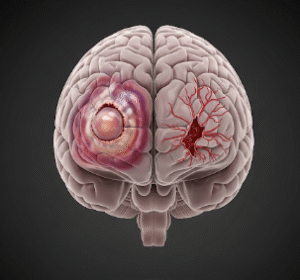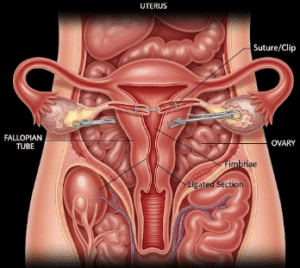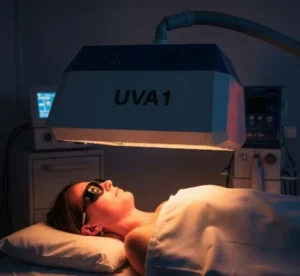Overview
Dissociative fugue is a rare psychological condition in which a person experiences sudden, unexpected travel away from home or usual surroundings, combined with inability to recall past events or personal identity. During a fugue episode, individuals may appear to function normally, but they are disconnected from their past and may even adopt a new identity.
In Korea, dissociative disorders are evaluated and treated in specialized psychiatric and psychological care centers, offering advanced therapies and rehabilitation support.
Key Facts
Highlights:
➡️ Dissociative fugue = sudden amnesia + unexpected travel.
➡️ Often linked to severe stress, trauma, or mental illness.
➡️ Person may adopt a new identity temporarily.
➡️ Symptoms can last hours, days, or even months.
➡️ In Korea, specialized mental health clinics provide care with psychotherapy and rehabilitation.
What is Dissociative Fugue?
Dissociative fugue is classified under dissociative disorders. It involves:
- Sudden memory loss (amnesia) for personal history.
- Wandering or travel away from familiar surroundings.
- Assumption of a new identity in some cases.
- Return of memory after the fugue state ends, often with confusion.
What Symptoms are Related to Dissociative Fugue?
People experiencing fugue may show:
- Sudden disappearance or wandering from home/work.
- Confusion about identity or inability to recognize self.
- Assumption of new identity in rare cases.
- Normal outward behavior despite memory loss.
- Emotional distress after regaining memory.
- Associated symptoms: depression, anxiety, trauma-related stress.
What Causes / Possible Causes?
Highlights:
➡️ Severe psychological trauma (abuse, disaster, war, loss).
➡️ Post-traumatic stress disorder (PTSD).
➡️ Severe stress or overwhelming life events.
➡️ Underlying psychiatric disorders (e.g., dissociative identity disorder).
➡️ Brain injury (rare, but can mimic fugue states).
When Should I See My Doctor?
Seek urgent psychiatric or medical evaluation if:
➡️ Someone suddenly disappears with memory loss.
➡️ A person forgets personal identity or important life details.
➡️ There is sudden behavioral change with unexplained travel.
➡️ Episodes recur or are associated with self-harm or suicidal thoughts.
Care and Treatment
Treatment focuses on restoring memory, reducing stress, and preventing recurrence.
Highlights:
➡️ Psychotherapy (talk therapy) – to address trauma and stress.
➡️ Cognitive behavioral therapy (CBT) – helps rebuild coping strategies.
➡️ Medication – antidepressants or anti-anxiety drugs, if needed.
➡️ Family therapy – to support understanding and recovery.
➡️ Hospitalization – in severe or high-risk cases.
Treatment Options in Korea
Korea provides comprehensive mental health services for dissociative disorders, combining modern therapy and supportive care.
Highlights:
➡️ Specialized psychiatric hospitals with dissociative disorder programs.
➡️ Trauma-focused therapy and CBT in leading clinics.
➡️ Advanced diagnostic tools for ruling out neurological conditions.
➡️ Integrative care – psychiatry, psychology, and neurology teams working together.
➡️ International mental health centers in Seoul, Busan, and other cities to support foreign patients.
➡️ Rehabilitation programs to reintegrate patients after fugue episodes.













